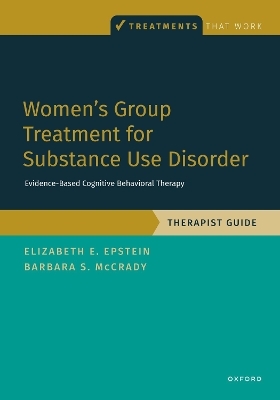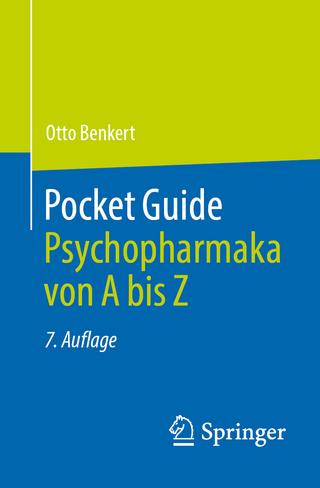
Women's Group Treatment for Substance Use Disorder
Oxford University Press Inc (Verlag)
9780197655085 (ISBN)
This cognitive-behavioral, motivation-enhancing guide for therapists can be delivered in inpatient or outpatient settings; designed primarily for group settings, it is also easily adapted for individual use. The program covers 12 weekly sessions to help women to become abstinent, preventing relapse to drinking or drug use, and to generally achieve improvement in quality of life. The therapist guide includes step-by-step instructions for addressing behaviors around drinking and drug use, general coping skills such as problem-solving, assertiveness training, wellness behaviors, and communication training, as well as additional female-specific interventions like social network support and building healthy, supportive relationships. If used in a group format, the therapy harnesses the power of peer support, shared wisdom, and universality of experience to accelerate positive change in desired outcomes. Overcoming alcohol or drug problems is an attainable goal with this effective and comprehensive program.
Dr. Elizabeth Epstein is Professor of Psychiatry at the University of Massachusetts Chan Medical School, and Professor Emerita at the Center of Alcohol Studies (CAS), Rutgers University. Previously, Dr. Epstein was a faculty member of Rutgers CAS, most recently as Research Professor and Director of the Clinical Division of CAS with appointments at the Rutgers Graduate School of Applied and Professional Psychology and Department of Psychology. She has developed and tested numerous treatment modalities (group, couple, family, individual, telehealth) and subpopulation-specific cognitive behavioral therapy (CBT) and motivational enhancement therapy (CBT/MET) protocols for drinking and drug use problems via randomized trials funded by the National Institutes of Health. She has been or is Principal Investigator (PI), co-PI or co-investigator on NIH or VA grants to develop evidence-based CBT addiction and comorbid psychiatric treatments tailored for: women with AUD; female Veterans with AUD; couples and families; military and Veteran populations; deaf individuals; smoking cessation; opiates and chronic pain; smartphone apps for behavioral couple/family therapy; and wrap-around models of community linkage and peer support. Her addiction treatment development research program includes investigation of active ingredients, mediators, and moderators of change; as well as implementation science components to optimize dissemination and usability for broader systems of addiction care. As a licensed psychologist, Dr. Epstein has regularly provided direct clinical services to clients since 1995. Dr. Barbara McCrady is Distinguished Professor (Emerita), University of New Mexico (UNM). Former Director of the UNM Center on Alcohol, Substance Use, and Addictions; previously at Rutgers University (1983-2007) where she served as Director of Clinical training, Chair, Department of Psychology and Clinical Director, Rutgers Center of Alcohol Studies. She was on faculty at the Brown University School of Medicine 1975-1983 where she developed and ran addictions treatment programs and conducted research. Her research focuses on empirically supported treatments for substance use disorder (SUD), including studies of: effectiveness and cost-effectiveness of cognitive-behavioral SUD treatment; conjoint treatment for persons with SUD and their spouses; Alcoholics Anonymous; alternative treatment models for women and with alcohol and other SUDs; mechanisms of change in behavioral treatments; understanding and treating SUD for persons in the criminal justice system, understanding behavioral and neurocognitive mechanisms of change in alcohol treatment. Her research has been funded by the National Institutes of Health (NIH) since 1979 and she was the PI of NIAAA pre- and post-doctoral NIH institutional research training grants at Rutgers and UNM (1994-2021). She has served as President of Division 50 (Addictions) of the American Psychological Association, President of the Research Society on Alcoholism, and Secretary-Treasurer of the Association for Behavioral and Cognitive Therapies.
Table of Contents - Therapist Guide
About Treatments That Work
Chapter 1. Introductory Information for Therapists
Chapter 2. What Is Women's CBT Group for SUD?
Chapter 3. How to Use This Therapist Guide and Client Workbook
Chapter 4. Clinical and Group Management Issues in Women's CBT Group for SUD
Chapter 5. The Initial Interview: Assessing Alcohol and Drug Use and Problems
Chapter 6. Session 1: Orientation, Daily Monitoring, and Abstinence Plans
Chapter 7. Session 2: Triggers and Behavior Chains
Chapter 8. Session 3: Presence of Heavy Drinkers/Drug Users in Social Network; Self-Management Plans
Chapter 9. Session 4: Enhancing Motivation to Change and Increasing Positive Consequences of Abstinence
Chapter 10. Session 5: Well-Being and Self-Care
Chapter 11. Session 6: Identifying Anxiety, Depression, Trauma; Coping with Cravings
Chapter 12. Session 7: Affect and Mood Management
Chapter 13. Session 8: Connecting With Others, Dealing With Alcohol/Drug-Related Thoughts
Chapter 14. Session 9: Assertiveness Training and Drink Refusal
Chapter 15. Session 10: Anger Management; Relapse Prevention I: Seemingly Irrelevant Decisions
Chapter 16. Session 11: Problem-Solving
Chapter 17. Session 12: Relapse Prevention II, Maintenance Planning
APPENDICES
Appendix I: Self-Report Measures
Appendix II: Clinical Intake Interview
REFERENCES
| Erscheinungsdatum | 05.08.2023 |
|---|---|
| Reihe/Serie | TREATMENTS THAT WORK |
| Verlagsort | New York |
| Sprache | englisch |
| Maße | 253 x 179 mm |
| Gewicht | 803 g |
| Themenwelt | Geisteswissenschaften ► Psychologie ► Klinische Psychologie |
| Medizin / Pharmazie ► Medizinische Fachgebiete ► Suchtkrankheiten | |
| Sozialwissenschaften ► Soziologie | |
| ISBN-13 | 9780197655085 / 9780197655085 |
| Zustand | Neuware |
| Informationen gemäß Produktsicherheitsverordnung (GPSR) | |
| Haben Sie eine Frage zum Produkt? |
aus dem Bereich


